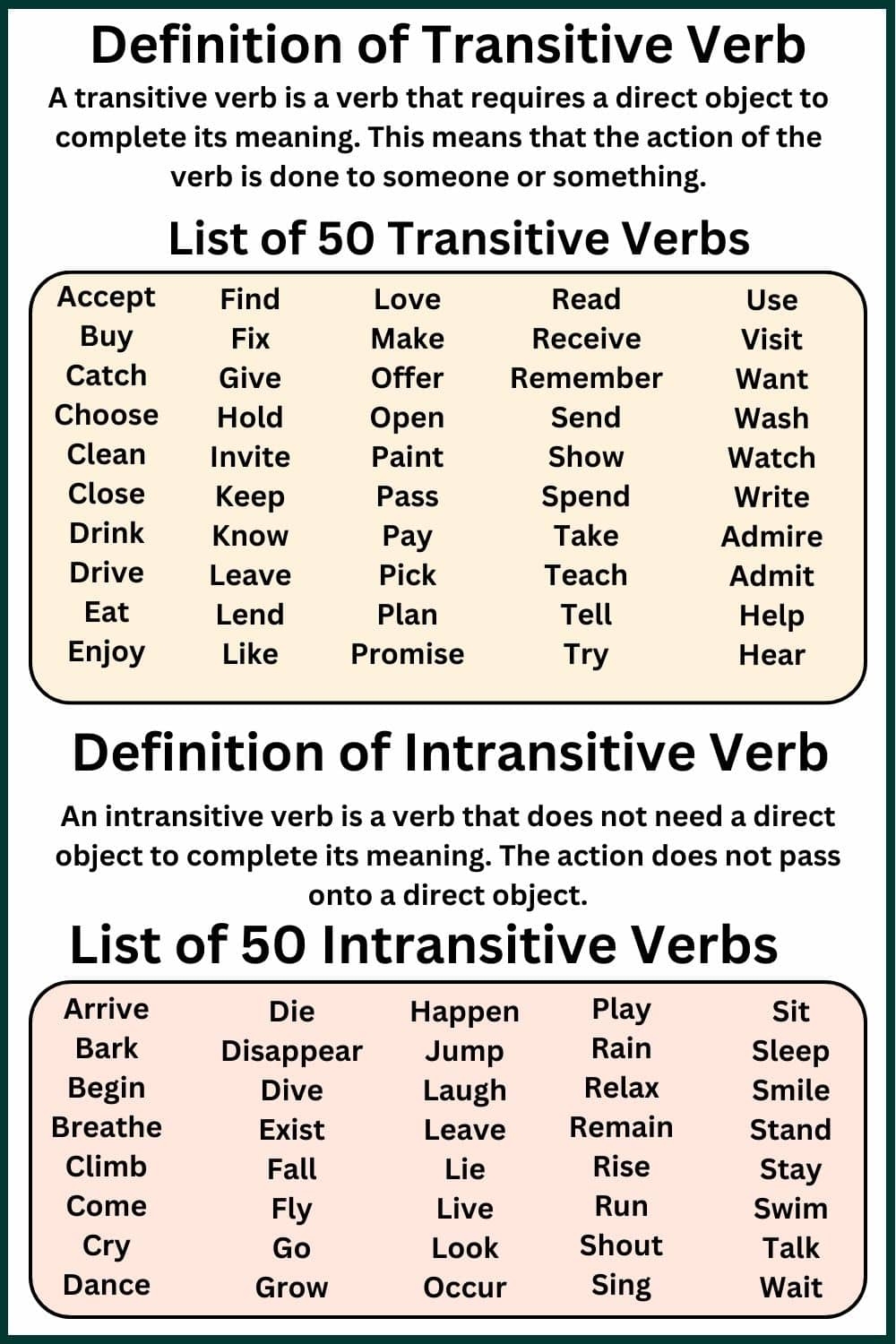Understanding the difference between transitive and intransitive verbs is essential in mastering grammar and improving your writing skills. Transitive verbs require a direct object to complete their meaning, while intransitive verbs do not require a direct object. Let’s explore some examples to grasp the concept better.
Transitive verbs are action verbs that require a direct object to make sense in a sentence. For example, in the sentence “She ate the apple,” the verb “ate” is transitive because it requires a direct object, which is “the apple.” Without the direct object, the sentence would be incomplete.
On the other hand, intransitive verbs do not require a direct object to complete their meaning. They express actions or states that do not need a receiver of the action. For instance, in the sentence “He sleeps peacefully,” the verb “sleeps” is intransitive because it does not need a direct object to convey the action.
Here are some examples of transitive and intransitive verbs:
- Transitive verb examples:
- – She bought a new car.
- – He wrote a letter to his friend.
- – They ate dinner at the restaurant.
- Intransitive verb examples:
- – The birds sing in the morning.
- – He ran quickly to catch the bus.
- – The flowers bloom beautifully in spring.
It is important to note that some verbs can be both transitive and intransitive depending on how they are used in a sentence. For example, the verb “run” can be transitive when used with a direct object (“He runs a marathon”) or intransitive when not followed by a direct object (“He runs every morning”).
By understanding the distinction between transitive and intransitive verbs and practicing with examples, you can enhance your writing skills and communicate more effectively. Remember to pay attention to the verbs in your sentences to ensure they are used correctly as transitive or intransitive.
In conclusion, mastering the difference between transitive and intransitive verbs is crucial for improving your grammar and writing abilities. By familiarizing yourself with examples of both types of verbs and practicing their usage, you can enhance your language skills and convey your ideas more clearly.
